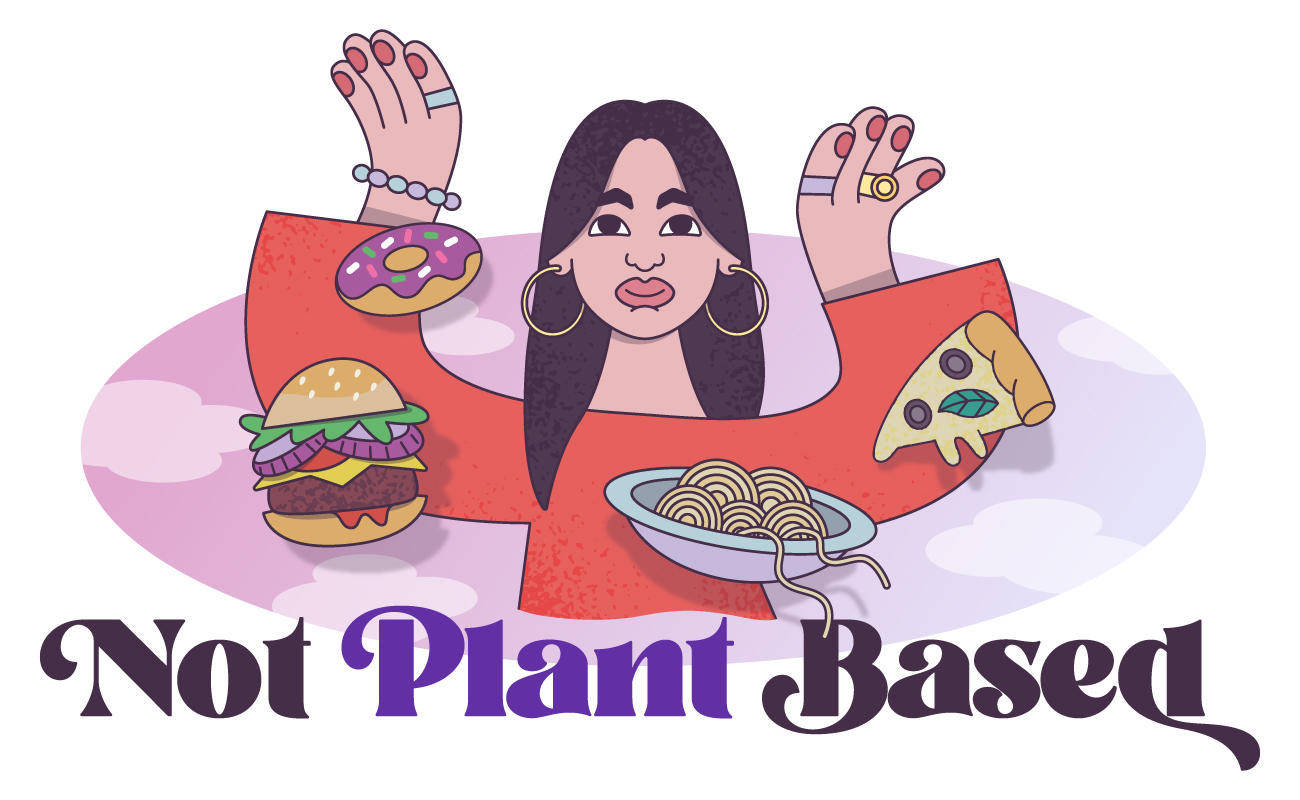
Something weird happened this week. Despite investing in three different types of biscuits, eating fruit crumble every night and averaging 70 per cent fewer steps than usual, I have, somewhat miraculously, lost weight. I don’t know why this has happened, given that I’m chair-bound for most of the day, but it is what it is, I suppose. Perhaps it’s the two times I attempted (and failed) to run 5k, or maybe it’s the lack of M&S egg mayo sandwiches.
Or, just maybe, it’s the hurricane of patronising, anti-fat diet spiel slapping me in the face from all angles. The bleak predictions of our impending national fatness, circulating widely on social media, have seeped into my psyche and stopped me from reaching for that extra 5pm Hobnob. According to some of the usual suspects, Covid19 is not the only beast we ought to be preparing to battle.
Another, far more dangerous, threat lies ahead and stands to cripple our beloved healthcare service, long after we’ve bid farewell to Covid (lol, when). It’s fatness of course! Obesity. Adipose tissue. High BMIs. Fat.
Some say fatness is the REAL tragedy of the Covid19 pandemic, given that obese individuals supposedly have a higher risk of severe illness after contracting the virus. And the current situation – with kind neighbours daring to deliver DOUGHNUTS to time-poor NHS workers (how very dare they) – will only make this crisis far, far worse.
An article published on a website (that everyone has definitely heard of) called Food Navigator ran with the catchy headline: ‘Coronavirus and obesity: Doctors take aim at food industry over poor diets’. In it, a collection of medics including British cardiologist Aseem Malhotra, blamed our love of ‘ultra-processed’ food for the unprecedented number of hospital deaths. Robert Lustig, Professor of paediatric endocrinology at the University of California said: ‘Ultra-processed food sets you up for inflammation, which Covid19 is happy to exploit. Just another way processed food kills’.
Stay on the fence there won’t you, Robert. A similar carry-on can be found on Twitter. Malhotra tweeted a particularly creative comparison – apparently donating cupcakes to NHS key workers is akin to rewarding a pet. But the food fascism seemed to stem further than social media this week.
Two disturbing things caught my attention. The first: A slideshow presentation warning children of the perils of obesity, passed to me from a concerned teacher in Suffolk. Alongside the predictable fat-bod pictures were statements such as: ‘the effects of obesity include lower educational education, a lower salary, being less likely to marry and more likely to commit suicide.’
This was intended for use in 127 classrooms – to educate KIDS. I’ll let that sink in for a moment. For all the other kids, BBC2 was on hand to provide this week’s instalment of ‘hate your fat body? No, you will do now!’ Millions of poor, innocent viewers across the country were subjected to the, ‘The Restaurant That Burns Off Calories’ – the latest episode of the channel’s popular SCIENCE (!) show, Horizon. I won’t go into any of the abhorrent details in the show for fear of triggering (the clue is in the title) but what I will say is this: It was as vile as it sounds. It was also presented by First Dates presenter Fred Sirieix (highly acclaimed for his health expertise in the…er… hospitality industry, I’m sure) and Dr Zoe Williams. Williams is a practicing NHS GP.
I’ll let that sink in too.
Anyway, I don’t know why these three fat-shaming tactics were thrust into my attention at roughly the same time. Perhaps it’s a low-key intervention by health chiefs who are panicking that we’ll all emerge from lockdown morbidly obese. Well, firstly, if anyone does have genuine concerns about this, none of the above will help. A swathe of evidence tells us that finger-wagging and guilt-conjuring does not work to change anyone’s behaviour.
At best, people gain more weight and at worst, they develop other physical and mental health problems, increasing their risk of Covid19 death further. And although articles outlining the cold, hard data ‘proving’ obesity is the biggest risk factor for coronavirus death appear convincing, said data isn’t exactly reliable. For one, it is far too early to make hard and fast conclusions about the specific characteristics of those dying from this virus.
Different countries report data differently and scientists haven’t yet had the opportunity to make in-depth analyses that account for other factors that may have caused a particular result. Most of the reports do not account for other factors that often co-exist with obesity, including smoking, heavy drinking and socioeconomic factors.
The majority of countries hit badly by the coronavirus have a high proportion of overweight citizens. Proportionally speaking, it makes sense that a high percentage of people in hospital with Covid19 would be overweight. There have even been some reports of higher weight people being somewhat protected from severe symptoms. And obviously this ‘ultra-processed’ food thing is not worth my time. Because, well, read this.
Aside from the ill-informed opinions – and unashamed using of a national health crisis to push a commercial agenda – what irks me so is that all the above is based on a presumed health problem. A prediction based on shaky science and inconclusive data about what could happen when this is all over. But how about we, just for a moment, give thought to a significant health problem that is claiming victims right now.
And I’m not just talking about Covid19. Over the past three weeks, the (already under-resourced) eating disorder charity Beat has seen desperate calls to their helpline increase by a third. This is hardly surprising – I detailed some of the ways in which lockdown is like dynamite to an ED sufferer last week.
The charity is perhaps the only, reliable source of support available round-the-clock for the 1 million people with eating disorders across the UK. And my insider contacts tell me they are struggling to keep up with the demand. Their trained volunteers work tirelessly to help vulnerable people get through the day – or even the hour. As we know, NHS resources for eating disorders are scant at the best of times, let alone during a national health emergency. This week three leading psychiatric experts published a report in the Journal of Eating Disorders, warning of the turmoil facing millions who are living with the illness in the time of coronavirus. There’s concern that stockpiling behaviours may trigger binge eating and bulimia, and those who are severely underweight are thought to be at high risk of becoming victims of Covid19. Not to mention the millions who will be left without essential psychiatric support. Anyone who has ever been affected by one of these illnesses knows that, when you’re clambering onto recovery, 24 hours is all it takes for things to take a dramatic – potentially deadly – turn.
And let me tell you, all this diet crap is making this already excruciating situation, impossible. It’s not a case of ‘it might’ or ‘it will’ – it is happening right here, right now. When the Horizon show aired on Tuesday night, Beat were forced to keep their phone lines open for an extra three hours, to deal with the damage it caused for thousands of viewers. I took the opportunity to alert the presenters to this, via Twitter. I also posted links to information about the deaths of several eating disorder sufferers, to illustrate the severity of the situation. To which presenter Fred Sirieix replied: ‘Enjoy the show tonight, x’
Turns out he issued the same reply to Beat’s concerns, as well as several other seriously unwell followers. When I and others called Aseem Malhotra out on his damaging posts, likening eating to a process of reward and punishment, I got a similarly pithy response, dismissing me as the ‘Queen of Fake News’. I don’t know if these people think eating disorders are a joke.
Perhaps the commissioning editor at BBC science thinks osteoporosis at the age of 22, infertility and being fed via a tube in your nose is a bit of a laugh, too. Well, it’s not. Neither, as I explained in my tweets to Fred the smug git, are the unnecessary deaths of young, vivacious girls with their entire lives ahead of them. Last year, 19,000 people were admitted to hospital with an eating disorder – 4,000 more than the year previously.
Only about half these people will recover and some of them will die. And as someone who has been one of those hospital patients, I can assure you that this spiel – be it on social media, online magazines or some shitty television show your mum makes you watch – is not innocuous. It sends your brain into overdrive, increases anxiety about food and, ultimately, contributes to a pattern of restrictive eating.
If you need proof, let me direct you to journalist Angelica Malin’s candid take about how her eating disorder can be traced directly back to an episode of Channel 4’s Supersize vs Superskinny. It takes a clusterf**k of stuff to sew the seeds of an eating disorder – but it only takes one inane television programme to get it growing.
So continue with your banterous, pass-agg tweets, Fred.
I for one won’t be laughing.
Please don’t suffer alone. For help dealing with this wretched illness please call Beat.



